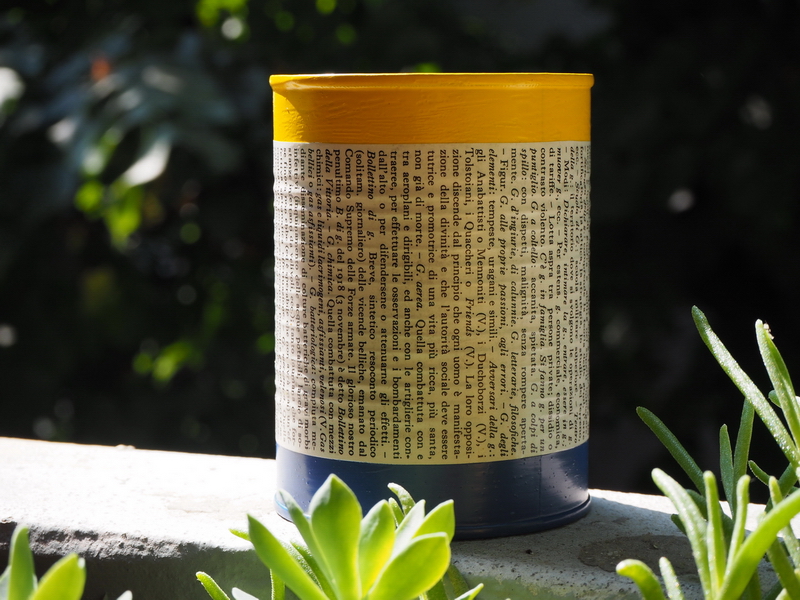Drops of knowledge... and of tin ![]()

Can eight hundred words be enough? For some linguists, they are sufficient for basic communication. And then... there is the language that bends to the will of the interlocutor and shapes thought. Lemmas, words, rhetorical figures that transcend culture and become art and provocation.
Here is the tin can, the ultimate example of a consumer item, useful for containing food for immediate use before being discarded, which becomes one with the lemmas of an ancient dictionary. The label, seen a thousand times and perhaps never truly read, with its small characters listing a thousand contents, replaced with ancient words from an old dictionary dated 1949. Signs of a time that is no more. Symbols of a culture that only partly belongs to us, evolved and devolved through and from time.
"Jars: Drops of Knowledge" is a simple means of disseminating a word, which (perhaps) we might never have encountered, unaware of its existence, thus losing a piece of our culture. Of our being thinking and verbalizing individuals.
The orientation of the text is not coincidental. In a world of fast reading where entire lines of text are skipped or a text is scanned capturing only the italicised or bold words, even just the effort of turning the jar horizontally, perhaps just to glance at the text, constitutes the action that leads to knowledge. That quid which stimulates thought and evolves its expression with ancient tools: words.
Each jar is a unique piece, numbered and signed.
Audio: Drops of knowledge... and of tin


















